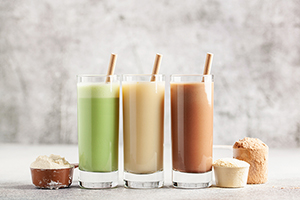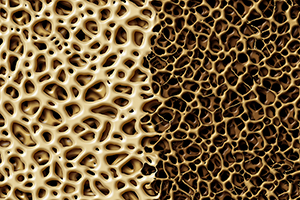



| By Dr. Ronald Hoffman
First Lady Michelle Obama has rolled out a new campaign to make Americans drink more water. “Water is the first and best energy drink,” she told a crowd at a high school at the aptly named Watertown, Wisconsin. It’s all part of her “Let’s Move” campaign that seeks to get Americans exercising more and eating better.
The program will utilize an intense media campaign that will include TV spots, Web ads and social media postings exhorting Americans to “#drinkH2O.” Corporate sponsorship will be used to defray the costs (more about that later).
Ms. Obama says that the Presidential family has embraced the water ethos: “That one little change made all the difference in our lives, to our girls, to me and Barack. We felt healthier and we felt more alert. And the more water we drank, the better we felt.”
The First Lady seems to echo Fereydoon Batmanghelidj, M.D. (“Dr. Batman”), who authored an enormously popular book in the 1990s proclaiming water as a panacea: Your Body’s Many Cries for Water, which promises “you’re not sick, you’re thirsty” www.watercure.com.
But does science support these claims?
It is not my intent to snark on the FLOTUS’s renewed efforts to improve the lot of Americans but rather only to help set the scientific record straight. As with many government pronouncements, sweeping recommendations are fraught with peril. Think low-fat guidelines, universal salt restriction and paltry RDAs, to name but a few.
Not that this is the first time a first lady has come under fire. It seems to be an American tradition.
Eleanor Roosevelt was ridiculed for her contralto voice and for her temerity in embracing internationalist political causes.
First Lady Nancy Reagan was lambasted for, in the opinion of some, naively suggesting that we “Just Say No'” to drugs.
Laura Bush was taken to task for supposedly reinforcing submissive female stereotypes by advocating literacy as a former teacher and librarian, “traditional” female occupations.
Hillary Clinton was felt by some to have overstepped her bounds by leaping into the political fray over health care reform instead of embracing a less controversial cause.
With husband Barack involved in multiple imbroglios over Syria, Obamacare, taxes, the Keystone Pipeline, etc., the First Lady perhaps envisioned getting behind an initiative that no one could take issue with.
What could be less controversial than . . . WATER? One can almost envision the First Lady, surrounded by her staffers in the White House, saying, “C’mon guys, can’t you think of SOMETHING?” A sleep-deprived intern perchance glanced at the water bottle in her hand, and Eureka! A campaign was born!
Nevertheless, after announcing her initiative, the FLOTUS was subjected to a veritable DELUGE of criticism.
Politico ran a very comprehensive story quoting numerous scientific experts to the effect that the science behind water-drinking was far from settled. They even said it was . . . “murky”.www.politico.com.
One such medical authority quoted in the article, Dr. Stanley Goldfarb of the University of Pennsylvania, said: “There really isn’t data to support this. I think, unfortunately, frankly, they’re not basing this on really hard science. It’s not a very scientific approach they’ve taken . . . To make it a major public health effort, I think I would say it’s bizarre.”
Goldfarb echoed the opinion, held by most kidney experts, that there is no “right” amount of water we should drink every day. Research shows that complex internal sensors and feedback systems generally guarantee that when we’re thirsty, we drink, and fluid balance and electrolyte homeostasis are maintained.
It’s only when we over-ride the body’s thirst signals that trouble ensues. Athletes who are bent on “hydrating” during long endurance events sometimes so dilute their blood that they feel wobbly-legged or even develop life-threatening brain swelling due to low sodium concentrations (hyponatremia).
Alternatively, compulsive water drinkers, perhaps in the mistaken belief that swigging water alleviates hunger pangs, court overhydration and weakness. There’s even a psychological condition called “hydrodypsomania,” obsessive sufferers of which go way overboard on H2O.
(Social observation: It seems to be rampant here in Manhattan where small dogs and big water bottles have become de rigueur fashion accessories for young women.)
Water drinking often is invoked as a way to lose weight. But the largest study to date, just published in the August edition of the American Journal of Clinical Nutrition, challenges that assertion: After examining 11 original studies and 2 systematic reviews the authors conclude that the evidence for a calorie-sparing effect of water-drinking is low, with data inconsistent.
What I DO like about Michelle O’s initiative is that re-popularizing water is likely to have the effect of displacing some high-calorie sodas and “energy drinks” in America. That would be very positive. On the other hand, milk producers are understandably miffed, because milk consumption is already steeply declining among calorie-conscious Americans.
What I find less appealing is the crony capitalism #drinkH2O invites. Bottled water manufacturers are asked to kick in to the campaign, with the prospect of product placement or simply to get into the good graces of the Obama Administration. This is significant, given that many are simultaneously marketing sugary beverages that increasingly will come under the gun of looming government regulation. This is an opportunity for these corporate giants to move money “under the radar” to curry favor with the Government.
And finally, there is the “dirigiste” aspect of the exhortation to Americans to drink more water. Ever since the British tried to set import quotas for English goods (think tea!), we have shown an ornery streak. As a rule, Americans don’t like to be told what to do, even if it’s supposed to be good for them. The recent furor over Mayor Bloomberg’s soda limits exemplifies this.
I’m all for public education about health, but the government has just done such a miserable job at messaging lately that I think many Americans are shutting down. Let’s allow unalloyed communication to get the facts out to the U.S. public, and let informed citizens decide for themselves how best to advance their health.
Here’s mud in your eye!
Though we think of declining estrogen as the hallmark of menopause, it's actually common for…

Up to 12 percent of Americans have ulcers at some point in life. Peptic ulcers…
Gallbladder disease is a modern illness. An estimated 20 million Americans have gallbladder disease. The…

Lately, I’ve been sharing with Intelligent Medicine listeners that I’ve been augmenting my diet with…

Q: I am a 77-year-old woman. On recent bone density test, lumbar spine results range…

The 1973 sci-fi movie Soylent Green depicts a dystopian future in which over-population and environmental…

Q&A with Leyla, Part 1: Copper Supplements

Our virtual voicemail is open 24/7, so there's no need to wait to submit your questions for Dr. Hoffman. Leave a message, and you may hear your question featured on the Intelligent Medicine radio program!